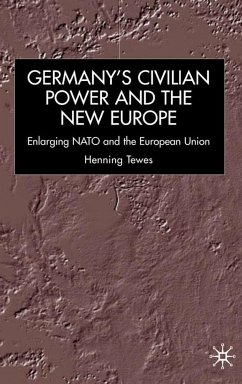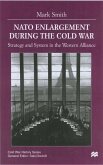In 1990, the future of Europe's international politics hinged on two questions. How would unification affect the conduct of German foreign policy? Would those institutions that had given security and prosperity to Western Europe during the Cold War now do the same for the entire continent, and if so, how. The intersection of these questions is the topic of this book, which explores, quite plainly, what made Germany's policies towards its immediate Eastern neighbours tick.
Hinweis: Dieser Artikel kann nur an eine deutsche Lieferadresse ausgeliefert werden.
Hinweis: Dieser Artikel kann nur an eine deutsche Lieferadresse ausgeliefert werden.
'This is quite simply the best study on German foreign policy, post-unification, that I have read for a long time.' - Hanns W. Maull, Professor of International Relations, University of Trier, Germany
'...a readable and well-researched discussion on Germany's role in a new, enlarged Europe...' - Forest L. Grieves, German Studies Review
'...a readable and well-researched discussion on Germany's role in a new, enlarged Europe...' - Forest L. Grieves, German Studies Review








